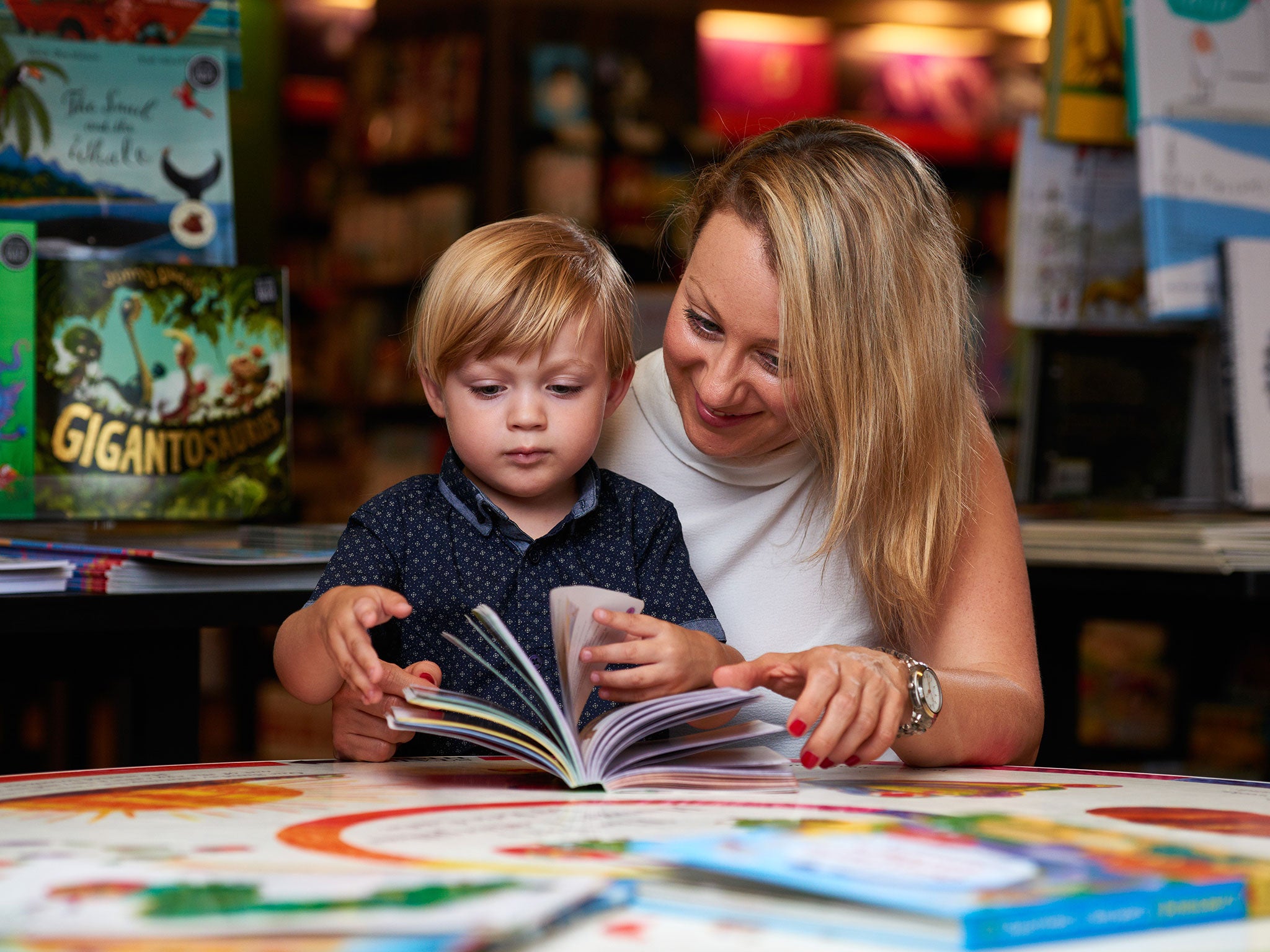Reading improves relationships and reduces depression symptoms, says new study
We all know the pleasure of curling up with a good read, but now it has proven benefits

It’s official: reading is good for you, according to a new report from The Reading Agency which looked at the effects of reading for pleasure on adults and children. Benefits include increased empathy, better relationships with others, reduced symptoms of depression and risks of dementia and improved well-being throughout life.
The Reading Agency, a charity whose mission is to inspire people to read more, commissioned the large-scale study to help it evaluate the impact of the work it carries out. Researchers analysed 51 papers and reports, all published within the past 10 years, most of which aimed to assess the impact of reading on literacy and academic success. But this study looked for the non-academic side effects of reading for pleasure, which included better communication between parents and children, increased self-esteem, reduced anxiety and stress and a greater understanding of other cultures.
Some of the information about dementia, for instance, came from two population-level studies in the United States, which showed that “being engaged in more reading, along with other hobbies, is associated with a lower subsequent risk of incidents of dementia. This was especially the case for reading fiction, over and above newspapers and magazines.”
Some of the report’s conclusions about the cultural benefits of reading were drawn from a 2007 study, which showed that “the most consistent outcomes reported were the ability to learn about the self and others, learning about diverse human populations and other cultures and learning about other periods of history. Respondents who read more frequently were also reported to have an enhanced ability to understand other people’s class, ethnicity, culture and political perspectives.”
Unfortunately for the UK, our levels of reading for enjoyment are not the highest. The Reading Agency has found that most children do not read on a daily basis, and almost a third of adults don’t read for pleasure. According to the Progress in International Reading Literacy Study, the percentage of pupils in England who “like reading” is only 26 – lower than the international mean of 28 per cent and 20 per cent lower than in Portugal. “It’s very interesting that outcomes of reading are based on enjoyment,” said Sue Wilkinson, chief executive of The Reading Agency, pointing out that the outcomes of reading for children, in particular, are more pronounced if the reading is undertaken voluntarily by the child.
So how should parents encourage their children to read for fun? Susan Elkin, a journalist, former teacher and the author of Please Miss, We’re Boys, taught English in secondary schools to both girls and boys, for 36 years.
“It’s all to do with stereotyping, role modelling and expectation”, she said. “Boys see their mothers reading but often not their fathers, so they copy. They also tend to be more fidgety and slower to mature than their sisters.”
Banned books
Show all 11Ms Wilkinson’s three top tips are: take your children to the library and get them involved in reading activities such as The Reading Agency’s Summer Reading Challenge; make sure that they see you reading; and read to them as well as with them – make it a fun part of every day and something you do together.
The Summer Reading Challenge last year saw 839,622 children take part – an increase on the previous year and a figure that included 44 per cent boys. World Book Night, which attempts to put books into the hands of people who wouldn’t usually read them, received 5,000 responses to a survey about its effectiveness. In all, 97.6 per cent of people were happy to receive a book and 60 per cent said they had read more since, while 40 per cent said they had bought more books.
The next step for The Reading Agency is to decide which five or six outcomes it wants to measure in more detail. Writer Philip Pullman is President of the Society of Authors, one of the organisations involved in the survey. He said: “I agree whole-heartedly with what this report is saying about the importance of reading for pleasure. The writer Samuel Johnson apparently didn’t say this, but someone did and it remains true: ‘The true aim of writing is to enable the reader better to enjoy life, or better to endure it.’”
Subscribe to Independent Premium to bookmark this article
Want to bookmark your favourite articles and stories to read or reference later? Start your Independent Premium subscription today.

Join our commenting forum
Join thought-provoking conversations, follow other Independent readers and see their replies